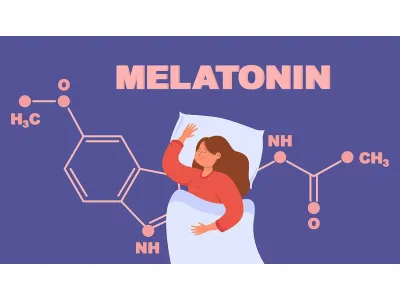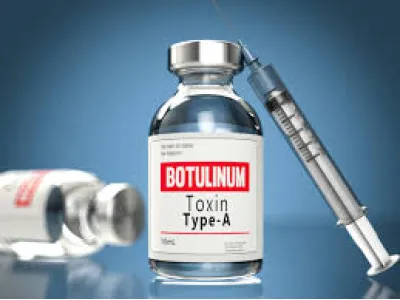The Iron Solution: Effective Treatment for Iron Deficiency Symptoms

Iron deficiency occurs when the body does not have enough iron to meet its needs. Iron - mineral that plays a very important role in various physiological processes.
The Role of Iron In The Body
Iron is a key component of hemoglobin, the protein in red blood cells that is responsible for transporting oxygen from the lungs to tissues throughout the body. In addition, iron is involved in energy exchange, DNA synthesis and the functioning of a number of enzymes.
Iron deficiency leads to a variety of health problems, including fatigue, weakness, cognitive impairment, and impaired immune function. In more severe cases, this leads to iron-deficiency anemia, which is characterized by low levels of hemoglobin and red blood cells in the blood, resulting in pale skin, shortness of breath, and dizziness.
Therefore, it is important to ensure adequate iron intake through diet or supplements to support health and prevent deficiency-related complications. Foods rich in iron include red meat, poultry, fish, lentils, beans, spinach, fortified cereals and nuts. However, the body absorbs iron more efficiently from animal sources (heme iron) compared to plant sources (non-heme iron).
Symptoms and consequences
Iron deficiency presents with a range of symptoms from mild fatigue and weakness to more serious complications such as anemia and cognitive impairment.
- Fatigue and weakness: feeling tired and lacking energy even after adequate rest is one of the common symptoms of iron deficiency. This fatigue affects daily activities and quality of life.
- Pale skin, cold hands and feet: iron deficiency leads to a decrease in hemoglobin level, and as a result to pale skin. And poor blood circulation due to a decrease in the production of red blood cells leads to a feeling of cold, especially in the extremities.
- Shortness of breath, dizziness and headaches: Inadequate oxygen transport due to low hemoglobin levels causes shortness of breath, especially during exercise. Also, reduced oxygen supply to the brain leads to dizziness and frequent headaches.
Consequences
- Anemia: Iron deficiency progresses to iron deficiency anemia, a condition characterized by low levels of hemoglobin and red blood cells in the blood. Anemia reduces the blood's ability to carry oxygen to tissues and organs, and leads to fatigue, weakness, pale skin, shortness of breath, and rapid heartbeat. Severe anemia impairs cognitive function, reduces exercise tolerance, and contributes to heart failure and angina pectoris.
- Cognitive impairment: Inadequate iron levels lead to cognitive impairment, affecting memory, concentration, focus, and problem-solving ability. This, in turn, affects academic success, work and quality of life. Children with iron deficiency have developmental delays and learning difficulties.
- Weakened immune system: Iron deficiency impairs immune function, making people vulnerable to infections and impairing their ability to fight pathogens. This reduces the production and activity of immune cells and interferes with the body's defense mechanisms. Recurrent infections, prolonged illness, and delayed recovery result from a weakened immune system due to iron deficiency.
- Cardiovascular complications: Iron-deficiency anemia puts a strain on the cardiovascular system, leading to chest pain (angina) and heart failure. The heart has to work harder to compensate for the reduced ability to carry oxygen, potentially leading to irregular heart rhythms (arrhythmias) and an increased risk of cardiovascular diseases such as heart attacks and strokes.
- Impaired physical performance: During physical activity, people experience decreased stamina, muscle weakness, and fatigue. It interferes with athletic performance, limits daily activities, and affects overall performance and well-being.
- Complications during pregnancy: Iron deficiency during pregnancy poses a risk to both the mother and the developing fetus. This increases the risk of preterm birth, low birth weight, and maternal complications such as preeclampsia and postpartum hemorrhage. Iron deficiency anemia during pregnancy affects fetal brain development, and in turn leads to long-term cognitive problems in the child. If there is insufficient amount of iron in the diet, pay attention to Maltofer Fol chewing tablets, which is a combined preparation containing iron and folic acid. They are used to treat and prevent iron deficiency with an increased need for folic acid during pregnancy and breastfeeding.
- Gastrointestinal disorders: Chronic iron deficiency results from gastrointestinal disorders such as inflammatory bowel disease (IBD), celiac disease, or gastrointestinal bleeding. These conditions impair iron absorption or lead to increased iron loss, exacerbating deficiency and complications.
Treatment for Iron Deficiency
Eating iron-rich foods such as red meat, poultry, fish, lentils, beans, tofu, fortified cereals and green leafy vegetables will help increase your iron intake.
Also include foods rich in vitamin C, such as citrus fruits, strawberries, bell peppers and tomatoes. These foods improve iron absorption through its role in converting non-heme iron into a more absorbable form. But it should be remembered that the assimilation of iron from plant sources (non-heme iron) is less efficient than from animal sources (heme iron).
Iron preparations
Oral iron supplements are usually prescribed to restore iron levels in individuals with a deficiency. These supplements come in various forms, including ferrous sulfate, ferrous gluconate, and ferrous fumarate. We advise you to pay attention to Maltofer drops 30ml - an iron preparation used for the treatment of iron deficiency and iron deficiency anemia.
Iron is an indispensable component of red blood pigment, red muscle pigment and iron-containing enzymes. Taking maltofer drops will reduce increased fatigue, decreased mental performance, irritability, restlessness, headaches, loss of appetite, noticeable pallor, cracked corners of the mouth, dry skin, brittle hair and nails.
Also, if you like taking syrups, pay attention to the Maltofer syrup bottle. Maltofer syrup should be taken during or immediately after a meal. It can be mixed with fruit or vegetable juices or fed from a bottle. A slight discoloration does not affect either the effect or the taste. A measuring cup is used for accurate dosing.
It is important to take iron supplements as directed by a healthcare professional to maximize absorption and minimize side effects. Iron supplements are usually taken on an empty stomach to improve absorption, but they can cause gastrointestinal discomfort or constipation in some people.
Intravenous treatment with iron
In cases of severe iron deficiency or when oral iron preparations are ineffective or poorly tolerated, intravenous (IV) iron therapy may be prescribed.
IV iron therapy involves injecting iron directly into the blood through a vein. This method allows for rapid replenishment of iron stores and is useful for individuals who cannot tolerate oral iron intake or have gastrointestinal diseases that prevent absorption. However, intravenous iron therapy carries the risk of allergic reactions such as anaphylaxis and requires administration under the supervision of a physician.
Disclaimer: The article contains information on the treatment of iron deficiency through diet and oral medication and should not be considered medical advice. Always consult your doctor with any questions you may have about your condition. Never disregard or delay seeking professional medical advice because of what you read in this text.
N. Huber










